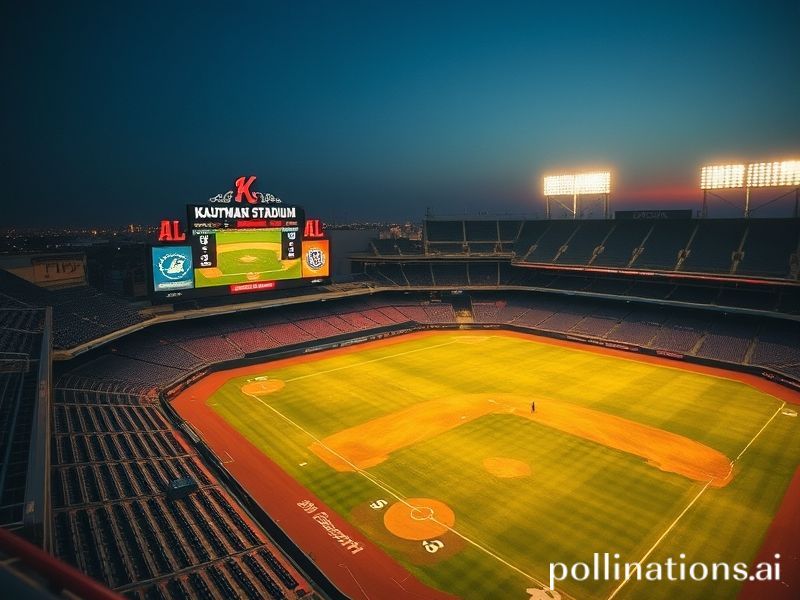AL Wild Card Standings: How America’s Baseball Drama Became the World’s Favorite Distraction
The AL Wild Card standings, that most American of scoreboards, are currently being scrutinized by baseball fans from Tokyo to Tegucigalpa with the intensity usually reserved for cryptocurrency charts or North Korean missile trajectories. Because let’s face it—when your own local economy is circling the drain like a poorly thrown slider, watching millionaires chase a tiny leather sphere around a manicured lawn becomes a perfectly reasonable form of international escapism.
As the season careens toward its merciful conclusion, the American League’s consolation prize bracket resembles nothing so much as a particularly vicious episode of Squid Game, but with more spitting and sunflower seeds. The Tampa Bay Rays, those plucky budget-conscious overachievers from Florida—a state that increasingly resembles a failed narco-state with Disney World—currently cling to the top wild card spot like a desperate remora on a dying shark. Their payroll strategy, which appears to involve finding players in the Costco clearance bin, has somehow produced a team that wins despite ownership’s apparent belief that paying players actual money is somehow optional.
Meanwhile, the Toronto Blue Jays occupy the second wild card position, proving that America’s pastime remains one of Canada’s most successful exports, right behind passive-aggressive apologies and questionable pop stars. The Jays’ presence in the playoff hunt serves as a gentle reminder that while the United States continues its slow-motion democratic implosion, at least one former colony has figured out how to maintain both baseball excellence and functional healthcare. This fact is not lost on the approximately 47 million Americans currently Googling “how to move to Canada” between innings.
The standings’ international implications extend far beyond mere sportsball. Consider the Baltimore Orioles, suddenly relevant again after years of serving as the league’s designated piñata. Their resurgence coincides nicely with China’s Belt and Road Initiative, suggesting that perhaps building things—baseball teams, infrastructure, international influence—requires the same basic ingredients: patience, money, and the willingness to ignore several human rights violations along the way.
The Texas Rangers, currently on the outside looking in, represent America’s petroleum-soaked id run amok—a $500 million roster built with the same fiscal responsibility that brought us the 2008 financial crisis. Their desperation to purchase success mirrors the global elite’s approach to climate change: throw obscene amounts of money at the problem while continuing to drill, baby, drill.
From a geopolitical perspective, these standings reveal uncomfortable truths about soft power in the 21st century. While China builds actual islands and Russia annexes actual countries, America exports its cultural imperialism through nine innings of pastoral nostalgia wrapped in corporate sponsorship. The fact that Shohei Ohtani’s every at-bat is tracked by millions across Asia isn’t just good for MLB’s international streaming revenue—it’s a reminder that cultural influence remains America’s most reliable export, even as its actual exports increasingly consist of weaponized conspiracy theories and reality TV.
The Houston Astros, those lovable cheaters who somehow escaped meaningful punishment for their sign-stealing scandal, sit precariously close to missing the playoffs entirely. This cosmic justice feels particularly delicious to international observers who’ve watched America’s institutions fail upward for decades. Their potential elimination would serve as a small but satisfying karmic correction, like watching a tech bro’s cryptocurrency portfolio finally face reality.
As we hurtle toward October, remember that these standings represent more than mere games. They’re a mirror reflecting our collective desperation for meaning in an increasingly meaningless world, where grown men wearing pajamas chasing a ball somehow seems more comprehensible than the actual chaos unfolding outside the stadium gates. At least in baseball, the rules—however arcane—remain consistent, which is more than can be said for international law these days.







